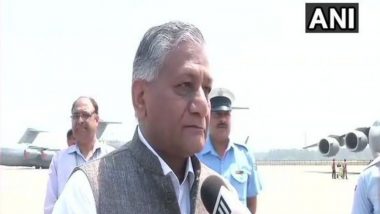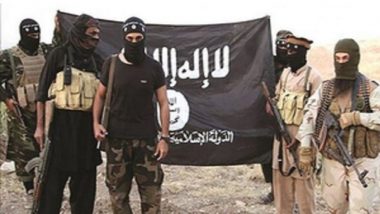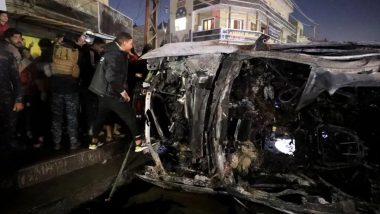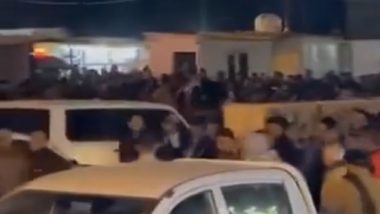Baghdad, April 1: The remains of 38 Indian construction workers captured and killed by the Islamic State group in northern Iraq were handed over to Indian authorities in Baghdad to be flown home later today.
Indian Ambassador Pradeep Singh Rajpurohit said the bodies had been taken to Baghdad International Airport and would be flown back on a military flight, arriving in India tomorrow.
India's Minister of State for External Affairs, Vijay Kumar Singh, saluted the remains at the airport as workers loaded the caskets on the aircraft. Singh condemned terrorism and expressed his government's stance in fighting it.
"We are against terrorism in all its forms and manifestations," he told reporters, describing IS as "very cruel terrorist organization and our people have fallen to their bullets."
IS abducted and killed the workers shortly after seizing the northern city of Mosul in the summer of 2014. Iraqi authorities discovered the remains in a mass grave last year after retaking Mosul, and positively identified the bodies last month.
The militants initially abducted 40 workers. One managed to escape, while the presumed remains of another have yet to be positively identified. Authorities are awaiting DNA samples from a first-degree relative.
The workers, most from northern India, had been employed by a construction company operating near Mosul. Around 10,000 Indians lived and worked in Iraq at the time. IS may have viewed the workers as polytheists deserving of death because of their Hindu or Sikh faith.
IS swept across northern and central Iraq in 2014, eventually seizing a third of the country. Iraqi forces backed by a US-led coalition eventually drove the militants from all the territory under their control in a grueling three-year campaign.
The militants are still carrying out insurgent-style attacks. Dozens of mass graves have been found in areas held by the extremist group, which boasted about massacring its enemies and posted videos and photos of many of the mass killings online. Iraq has only managed to excavate a few of the sites due to a lack of funding and specialized staff. (AP)













 Quickly
Quickly




















